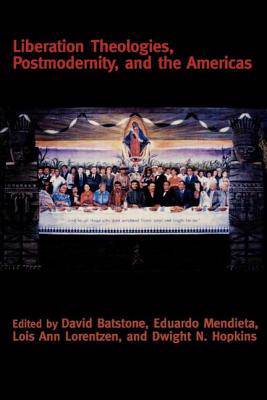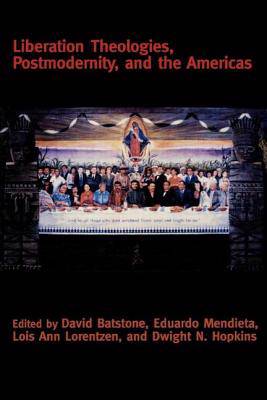
Je cadeautjes zeker op tijd in huis hebben voor de feestdagen? Kom langs in onze winkels en vind het perfecte geschenk!
- Afhalen na 1 uur in een winkel met voorraad
- Gratis thuislevering in België vanaf € 30
- Ruim aanbod met 7 miljoen producten
Je cadeautjes zeker op tijd in huis hebben voor de feestdagen? Kom langs in onze winkels en vind het perfecte geschenk!
- Afhalen na 1 uur in een winkel met voorraad
- Gratis thuislevering in België vanaf € 30
- Ruim aanbod met 7 miljoen producten
Zoeken
Liberation Theologies, Postmodernity and the Americas
€ 96,45
+ 192 punten
Omschrijving
Simultaneously arising out of such diverse contexts as the black community in the United States, grassroots religious communities in Latin America, and feminist circles in North Atlantic countries, theologies of liberation have emerged as a resource and inspiration for people seeking social and political freedom. Over the last three decades, liberation theology has irrevocably altered religious thinking and practice throughout the Americas. Liberation Theologies, Postmodernity and the Americas provides a meaningful and spirited debate on vital interpretive issues in religion, philosophy, and ethics. The renowned group of scholars explore liberation theologies' uses of discourses of emancipation, revolution and utopia in contrast with postmodernism's suspicion of grand narratives, while assessing what the postmodernism/liberation debate means for strategies of social and political transformation. Guided by the experiences of those at the margins of social power, liberation theologies demystify the eurocentric myths of secularization and modernity, and calls for a re-appraisal of religion in contemporary societies. Contributors: Edmund Arens, David Batstone, Maria Clara Bingemer, Enrique Dussel, Gustavo Gutierrez, Jurgen Habermas, Franz Hinkelammert, Dwight Hopkins, Lois Ann Lorentzen, Eduardo Mendieta, Amos Nascimento, Elsa Tamez, Mark McLain Taylor, and Sharon Welch, Robert Allen Warrior
Specificaties
Betrokkenen
- Uitgeverij:
Inhoud
- Aantal bladzijden:
- 320
- Taal:
- Engels
- Reeks:
Eigenschappen
- Productcode (EAN):
- 9780415916592
- Verschijningsdatum:
- 25/06/1997
- Uitvoering:
- Paperback
- Formaat:
- Trade paperback (VS)
- Afmetingen:
- 151 mm x 227 mm
- Gewicht:
- 462 g

Alleen bij Standaard Boekhandel
+ 192 punten op je klantenkaart van Standaard Boekhandel
Beoordelingen
We publiceren alleen reviews die voldoen aan de voorwaarden voor reviews. Bekijk onze voorwaarden voor reviews.








